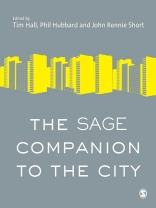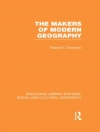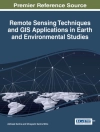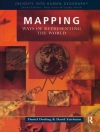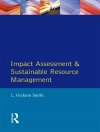‘This book pulls together an exceptional range of literature in addressing the complexity of contemporary patterns and processes of urbanization. It offers a rich array of concepts and theories and is studded with fascinating examples that illustrate the changing nature of cities and urban life’
– Paul Knox, Virginia Tech University
‘The SAGE Companion to the City is a tour-de-force of contemporary urban studies. At once a stocktake, showcase and springboard for scholarly approaches to cities and city life, the editors have assembled a cohesive and convincing set of lucid, insightful and critical essays of great quality. Eschewing grand theory and deadening encyclopediasm, the contributors refresh both longstanding concerns and explore new themes in ways both brilliantly accessible to newcomers and satisfying to the cognoscenti.’
– Robert Freestone, University of New South Wales
Organized in four sections The SAGE Companion to the City provides a systematic A-Z to understanding the city that explains the interrelations between society, culture and economy.
- Histories: explores power, religion, science and technology, modernity, and the landscape of the city.
- Economies and Inequalities: explores work and leisure, globalisation, innovation, and the role of the state.
- Communities: explores migration and settlement, segregation and division, civility, housing and homelessness.
- Order and Disorder: explores politics and policy, planning and conflict, law and order, surveillance and terror.
An accessible guide to all areas of urban studies, the text offers both a contemporary cutting edge reflection and measured historical and geographical reflection on urban studies. It will be essential reading for students of any discipline interested in the city as an object of study.
قائمة المحتويات
PART ONE: HISTORIES AND IDEOLOGIES
Power and Prestige – Lily Kong
Faith and Devotion – Keith Lilley
Science and Technology – Colin Chant
Modernity and Utopia – John R. Gold
Monuments and Memories – Lisa Benton-Short
PART TWO: ECONOMIES AND INEQUALITIES
Capital and Class – Kevin Ward
Global and Local – Yeong Kim
Innovation and Creativity – Andy C. Pratt
States and Laws – Angus Cameron
Pleasure and Leisure – David Bell, Sarah L. Holloway, Mark Jayne and Gill Valentine
PART THREE: COMMUNITIES AND CONTESTATION
Migration and Settlement – Marie Price
Segregation and Division – David Wilson
Civility and Etiquette – Mick Smith and Joyce Davidson
House and Home – Sarah Holloway
Housing and Homelessness – Gerald Daly
PART FOUR: ORDER AND DISORDER
Politics and Policy – Don Mc Neill
Speed and Slowness – Alan Latham and Derek Mc Cormack
Planning and Conflict – Malcolm Miles
Crime and Policing – Steve Herbert
Terror and surveillance – Jon Coaffee and David Murakami Wood
Dreams and Nightmares – Stuart C. Aitken
عن المؤلف
Professor, author and renowned public speaker, John Rennie Short is an expert on urban issues, environmental concerns, globalization, political geography and the history of cartography. He has studied cities around the world, and lectured around the world to a variety of audiences.
John Rennie Short is Professor of Public Policy at the University of Maryland (UMBC).
Before coming to UMBC in 2002 he was a Professor in the Maxwell School of Citizenship and Public Affairs at Syracuse University. From 1978 to 1990 he was Lecturer in the University to Reading UK. He has held visiting appointments as Senior Research Fellow at the Australian National University, as the Erasmus Professor at Groningen University and as the Leverhulme Professor at Loughborough University. Among his research fellowships are the Vietor Fellowship at Yale University, the Dibner Fellowship at the Smithsonian, the Kono Fellowship at the Huntington Library and the Andrew Mellon Fellowship at the American Philosophical Library.
He has received research awards from the National Science Foundation, Environmental Protection Agency, National Geographic Society and the Social Science Research Council. Dr. Short′s main research interests are in urban issues, environmental concerns and cartographic representation. He is the author of over 30 books, 19 invited chapters to edited books and over 40 papers in such journals as Area, City, Environment and Planning, Geoforum, International Journal of Urban and Regional Research, Journal of American Planning Association and Urban Studies.
Recent books include Korea: A Cartographic History (2012),
Globalization, Modernity and The City (2011), Cities and Suburbs (2010), Cartographic Encounters (2009), Cities and Nature (2008), Sage Companion To The City (2008), Cities and Economies (2008), Liquid City (2007), Alabaster Cities (2006), Urban Theory (2006), Imagined Country (2005), Global Metropolitan (2004), Making Space (2004), Globalization and The Margins (2003), Global Dimensions (2001), Representing The Republic (2001) and Globalization and The City (1999).
His The World Through Maps was recognized by Discover Magazine as one of the outstanding science books of 2003.
His work has been translated in to Czech, Korean and Chinese and cited over 3, 000 times in articles in over 330 different research journals. He has delivered lectures to universities around the world and given presentations to a range of audiences outside of the academy.
He is a founding co-editor of the journal Society and Space, founding editor of the book series Space, Place and Society published by Syracuse University Press, founding co-editor of the Critical Introduction to Urbanism book series published by Routledge and consultant to the 12 volume World and Its Peoples.
He received his M.A. from the University of Aberdeen, UK in 1973 and his Ph.D. from the University of Bristol, UK in 1976. He was born in Stirling, Scotland.
